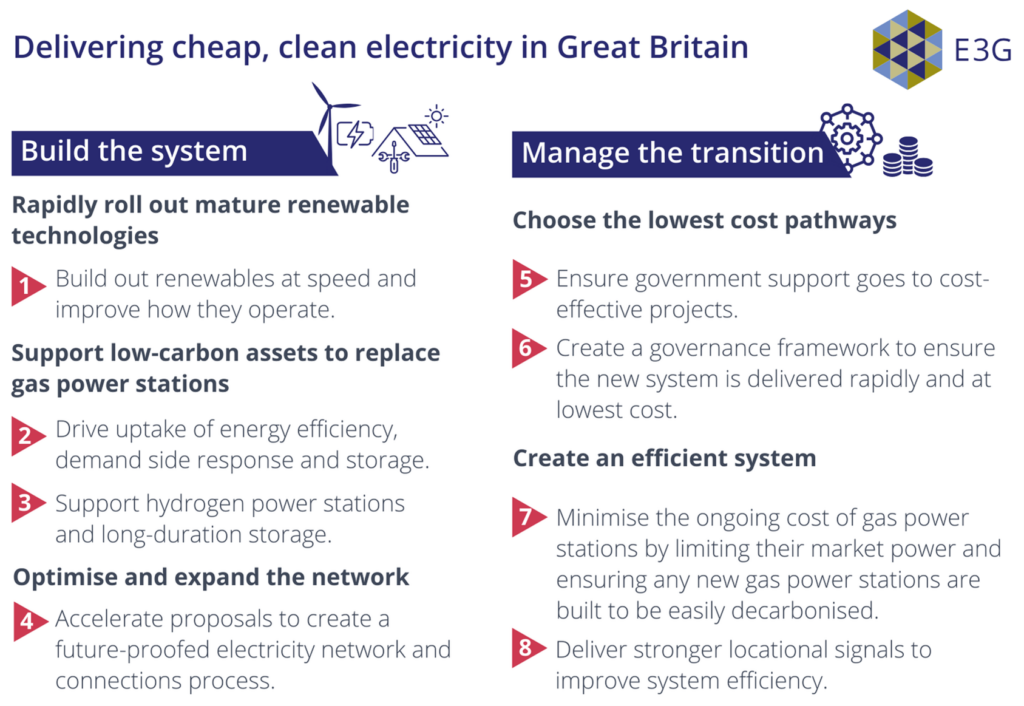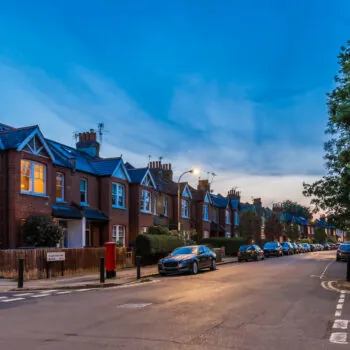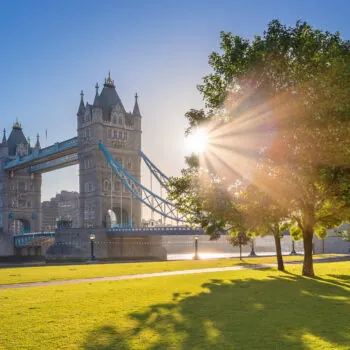To protect the economy and permanently lower bills, Great Britain needs to get off gas and rapidly build a low-cost, clean electricity system. This report sets out a framework for achieving this, using the Labour Government’s 2030 clean power target as the guiding star.
Great Britain is highly dependent on gas for electricity generation – which presents a major risk for households and national finances. The recent gas crisis pushed inflation sky-high and millions into fuel poverty. As a result the Treasury was forced to subsidise energy bills by over £94 billion. Remaining dependent on gas imports means Great Britain could be hit by these crises again. This would be disastrous. Recurring price spikes could cost the economy double the cost of net zero, with none of the economic and environmental benefits.
Delivering low-cost clean electricity
Great Britain must transition rapidly to a clean electricity system. A renewables-based electricity system could make bills lower than they were pre-gas crisis and shield us from future price spikes. This new system should be underpinned by wind and solar power and managed with flexible demand and storage. These technologies can all lower bills. Alongside this, new low-carbon hydrogen power stations and green hydrogen storage should be rapidly built. This is a strategic future technology for Great Britain needed to decarbonise and protect our energy security.
To effectively lower bills, the next stage of the clean electricity transition must be well-designed and successfully managed. This is essential as significant sums must be spent to transform Great Britain’s electricity system. This price will be much greater if the transition is managed poorly, wiping out the potential to permanently lower bills. The government will need to stand up to vested interests to secure the lowest cost transition pathway. Policies and strong, independent governance mechanisms can ensure that rapid investment is put into the right assets in the right place, at a good price. They must ensure that once built, these assets are operated to meet the needs at the lowest cost.
Below we highlight the specific interventions to transition Great Britain to a low-cost, clean electricity system by 2030.

Moving away from gas cannot be done instantly, so bills may remain high for some time. Targeted groups of consumers can be supported during this transition by:
- Introducing targeted energy bill support, guaranteeing affordable energy for vulnerable households (i.e. a social tariff).
- Boosting rates of home decarbonisation with energy efficiency, heat pumps and heat networks.
- Removing policy levies from electric heating to lower bills and kick start the heat pump market.
Read the full report and summary.


